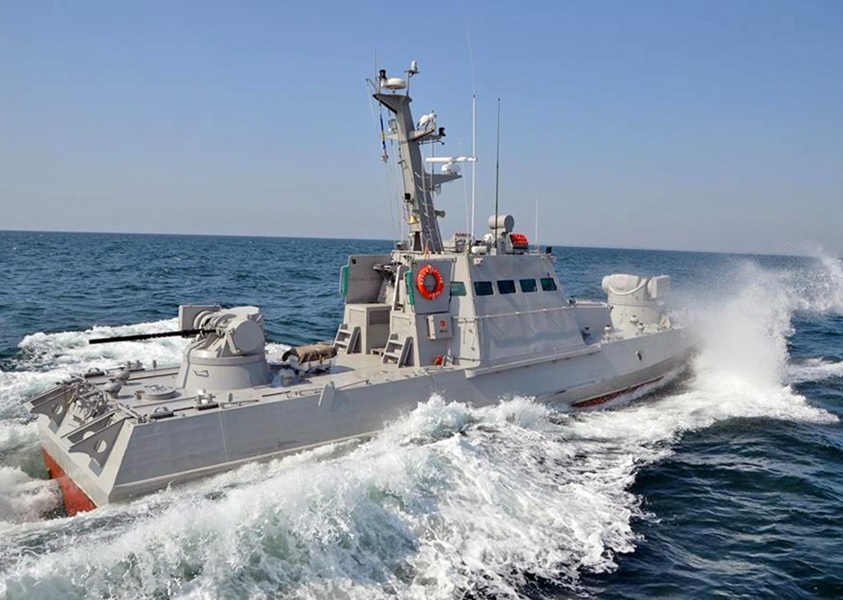Since 2014 Ukrainian maritime fishermen appeared in the situation of interstate conflict, with establishing the effective control of Russia over Crimea and Ukrainian-Russian standoff on the Azov and Black Seas. Such situation influenced negatively of the social and labour right of fishermen, as included to the traditional local fishery in the Ukrainian maritime inland waters, territorial sea and economic zone, so of fishermen, employed on the Ukrainian ocean fishery vessels, working in the Atlantic and South Oceans.
Incidents of arbitrary detentions and even of perished Ukrainian fishermen happened on the Azov before, due to the specific rights of enforcement structures of the both shore states, reflected in the bilateral Agreement of 1993 that is still in force. Such situation caused by threats and intimidation by Russian party to make impossible any activities of Ukrainian mainland fishermen if the Agreement will be stopped by Ukraine.
Since 2014 annual Ukrainian-Russian protocols on Azov fishery hushed up the issue of the Crimean fishermen and their vessels, controlled by Russia, but in 2018 the vessel “Nord” from Kerch was arrested by Ukrainian board guard on Azov Sea.
It increased the political attention to such fishery and soon after the Russian board guard captured two Ukrainian fishery vessels in Black Sea waters, located between the Crimea and Ukrainian mainland,– “ЯМК-0041” from Ochakiv in May, 2018 and “ЯОД-2105” from Tatarbunary in September, 2018. Its crews were kept by Russian authorities as hostages, without any formal suspicion, in Sevastopol and were released in October, 2018, also as crew of “Nord”, which was kept in Russian embassy in Kyiv, returned to Crimea.
Later, in June 2019 Russian punitive bodies held the trial over the captain of Ukrainian vessel “ЯМК-0041” in Sevastopol for ‘illegal fishery’ and punished two others Ukrainian fishermen, detained on the Sivash bay in September, 2018 for “illegal crossing the state boarder line of Russia”. But all those three fishermen were transferred, after the sentences of Russian ‘courts’ in Crimea, to Ukrainian mainland without the further imprisonment in Crimean jail.
So the risks for Ukrainian mainland fishermen to be detained by Russians on the sea during next escalation of the interstate conflict are high and they make the negative influence on the fishermen labour rights` realisation, guaranteed for the traditional local fishery by the norms of Hague and Geneva humanitarian law, such as article 3 of XI Hague Convention.
The frame of challenges for the Ukrainian oceanic fishermen is also connected with Crimea, as the coherent vessels, affixed formally to the ports Kerch and Sevastopol, were traditionally placed by the Crimean fishermen. After 2014 such vessels were preserved under formal Ukrainian control but their number reduced and for this moment, since 2016, only four such oceanic fishery vessels are in the state property.
Alas all of them are in bareboat-charter for foreign companies, flying not Ukrainian, but Georgian and New Zealand flags and are supervised by the Russian maritime register of shipping, with mixed crew from Ukrainian and Russian fishermen, including Crimeans. So the safety and social guarantees, established for their crews by the Ukrainian labour legislation and International Convention on Standards of Training, Certification and Watchkeeping for Fishing Vessel Personnel, STCW-F, ratified by Ukraine, were annulled by such reflagation.
Such situation of sufficient reducing the Ukrainian fishermen labour rights became media-reflected after the tragic incident with one of those vessels “Ivan Golubets” that sank in July, 2019 near the Mauritania shore after the fire in engine. As minimum one Ukrainian fisherman disappeared in the fire, and the total crew of 90 persons got sufficient traumas and moral damage, that were non-compensated by the formal ‘Canadian ship-owner’.
So now the rights of Ukrainian maritime fisherman are violated and infringed not by the Russian effective control over Crimea an adjacent maritime spaces only, but by the character of Ukrainian state management, that destroyed in XXI century the Ukrainian oceanic fishery.
Borys BABIN, Professor, Legislation Institute of Verkhovna Rada of Ukraine

